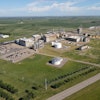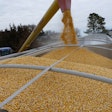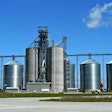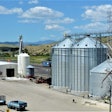
This year has presented a whirlwind of challenges for the entire U.S. Soy value chain. Heavy rain and flooding have complicated both planting and transportation. Trade challenges with China have left us a projected record stockpile, with ambiguous markets creating uncertainty for farmers and a strain on elevators, processors and storage facilities. And the spread of African Swine Fever in China and elsewhere has impacted short-term demand.
It’s a potent combination of gut punches, leaving many businesses and families hurting. But this industry is used to pulling itself up from the canvas and answering the bell.
U.S. Soy has all the right tools to come back from these challenges stronger than ever. High-quality products at highly competitive prices. Sustainable practices that meet and exceed global customer standards. And unsurpassed storage and transportation infrastructure to cost-effectively move products where they’re needed.
Challenging times like these are when collaborative, industry-funded checkoff programs and the farmer-directed work we carry out is most important. At the United Soybean Board, we appreciate the role you play in helping us move U.S. soybeans through our marketing and processing channels. We are also placing renewed energy into nurturing collaborative relationships and substantive work partnerships with top organizations — both in efforts to open new markets for sustainable soy products and to build awareness and understanding of what we do among a public that is disconnected from agriculture.
In research, our collaborative efforts are resulting in emerging opportunities in new fuels, plastics, foams, asphalt and even wood products. We’re also working to find and develop new international markets for U.S. Soy.
Equally important are our efforts to educate the public on the benefits of soy products. Agriculture faces a profound gap between consumer perceptions of farmers and the reality of today’s safe, efficient and sustainable farm practices. Soy is no exception; in fact, because of our size in the global market, we are often the target of society’s concerns.
We cannot remain silent about what we stand for, how we steward resources and the value we bring to food, the environment and society. We must lead the industry in spurring conversations, education and active engagement of current consumers and future generations. Close and respectful relationships with our partners, friends and even those with whom we disagree — both inside and outside agriculture — will be critical to our future success. ■
Polly Ruhland
Polly Ruhland, CEO of United Soybean Board, works on behalf of U.S. farmer investors to advance agriculture’s sustainability through research, education and promotion programs. Prior to joining USB, Ruhland has served in a variety of capacities at the Cattlemen’s Beef Promotion and Research Board, the National Cattlemen’s Beef Association, the Commodity Roundtable for Chief Executive Officers of Research and Promotion Programs and the American Farmland Trust. You can reach here byclicking here.




















